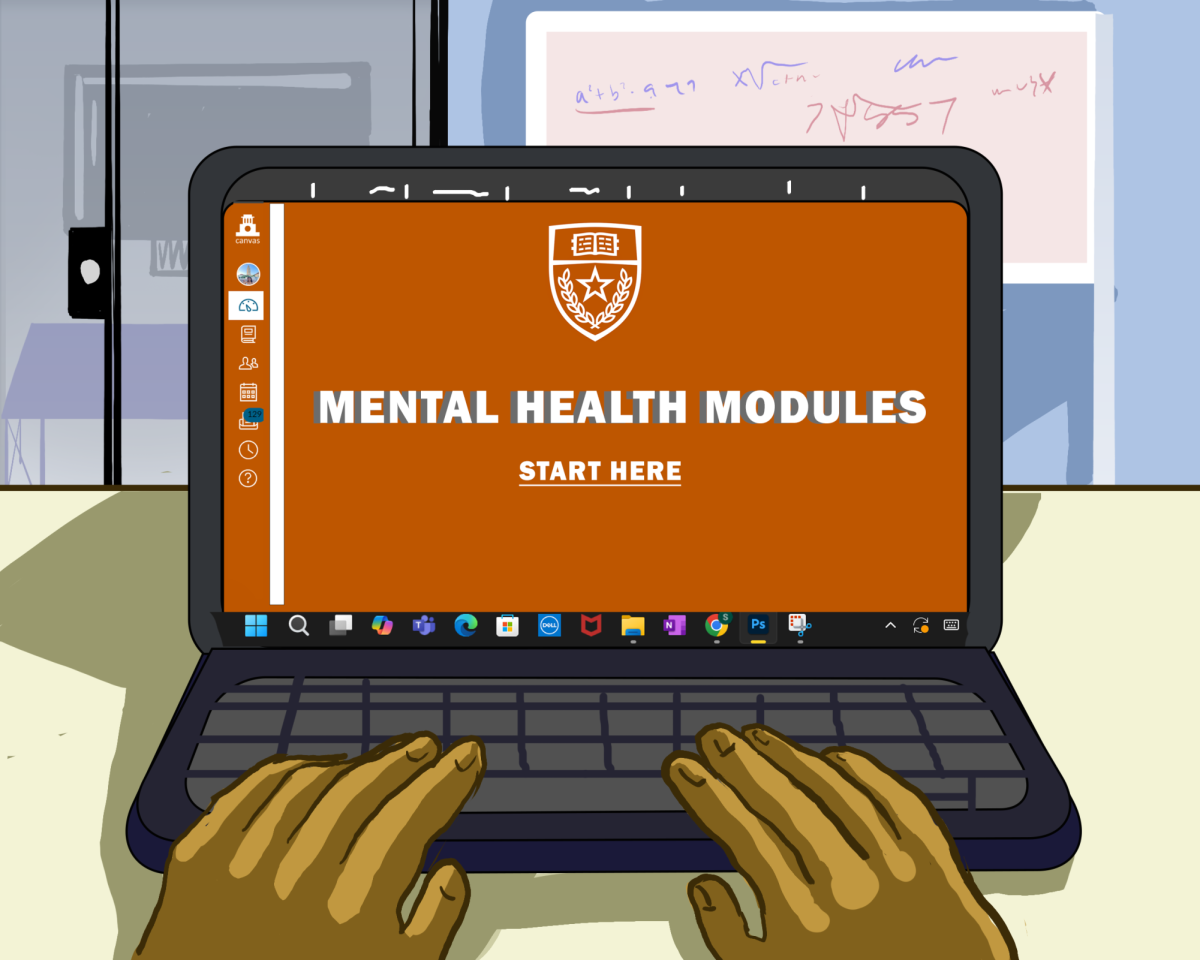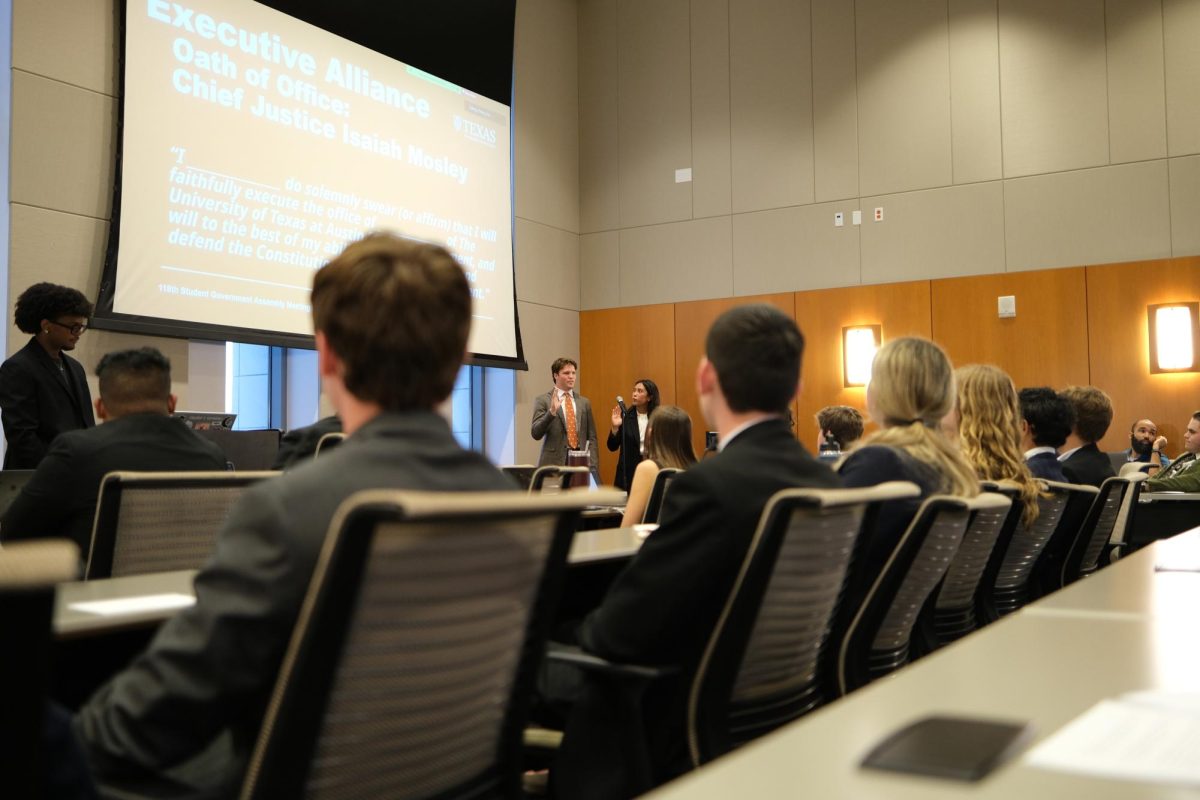Incoming students across the University of Texas System will now have to take mental health training beginning in the fall under an initiative spearheaded by UT’s former Student Government president and vice president.
The University informed Grace Kelly and Elle Grinnell, former SG president and vice president, on March 25 that UT System signed a contract to implement the mandatory mental health modules across all its universities. Kelly said the modules will be similar to the pre-existing alcohol and sexual assault already required for freshmen before they start their first semester.
“It is crazy that there’s … an idea of mine that could be something so big,” Kelly said. “I’m really just excited and proud of our team for the persistence. We embraced the year for what it was, and we’re able to just continue pushing ourselves to do more with this project and be very solutions-oriented of how we can make this a larger initiative.”
Kelly said she first pitched the mental health modules to Chris Brownson, UT’s associate vice president for health and well-being, at the start of her term last year. She said Brownson, who oversees the implementation of UT System health and well-being initiatives, helped expand the project by connecting with faculty across the system. Kelly said she also pitched the modules at the UT System Student Advisory Council meeting in September.
“With the faculty, staff and administrators being interested, and then students expressing interest as well, we were able to take it to the UT system and seek the funds (for the initiative),” Kelly said.
Brownson said the modules will include an introduction to mental well-being and sections focused on self-care strategies, recognizing signs of distress and accessing support. He said each university is able to customize the modules to provide their own welcome message and information on local resources including UT’s after hours crisis hotline and telehealth mental health counseling, a virtual healthcare provider.
“We know that health, and specifically mental health, is closely linked to students’ ability to thrive on our college campuses,” Brownson said. “These modules provide a solid base layer of information about managing mental well-being and recognizing distress in themselves and others.”
Grinnell said she and Kelly had a watch party for the modules, where they got to see a preview. She said it is exciting to see one of their external policies come to fruition.
“(UT’s Counseling and Mental Health Center) website is amazing, (and) it has tons of resources on it, but sometimes it’s very hard to find certain things,” Grinnell said. “The resources that will be given at the end of these mental health modules will be a more condensed version and easier to be able to remember and then go find them.”
Kelly said the Counseling and Mental Health Center and UT System plan to track how many students engage with the modules to measure impact. She said she’s looking forward to seeing how students respond.
“In addition to the initiatives that we did in student government, like town halls and newsletters, we were able to accomplish something so big,” Kelly said. “This is the first time that UT has really been able to go out and do a UT System-wide initiative like this, so I’m really proud of the effort.”
Editor’s Note: A previous verison of this article incorrectly linked to UT’s telehealth mental health service. The Texan regrets this error.















